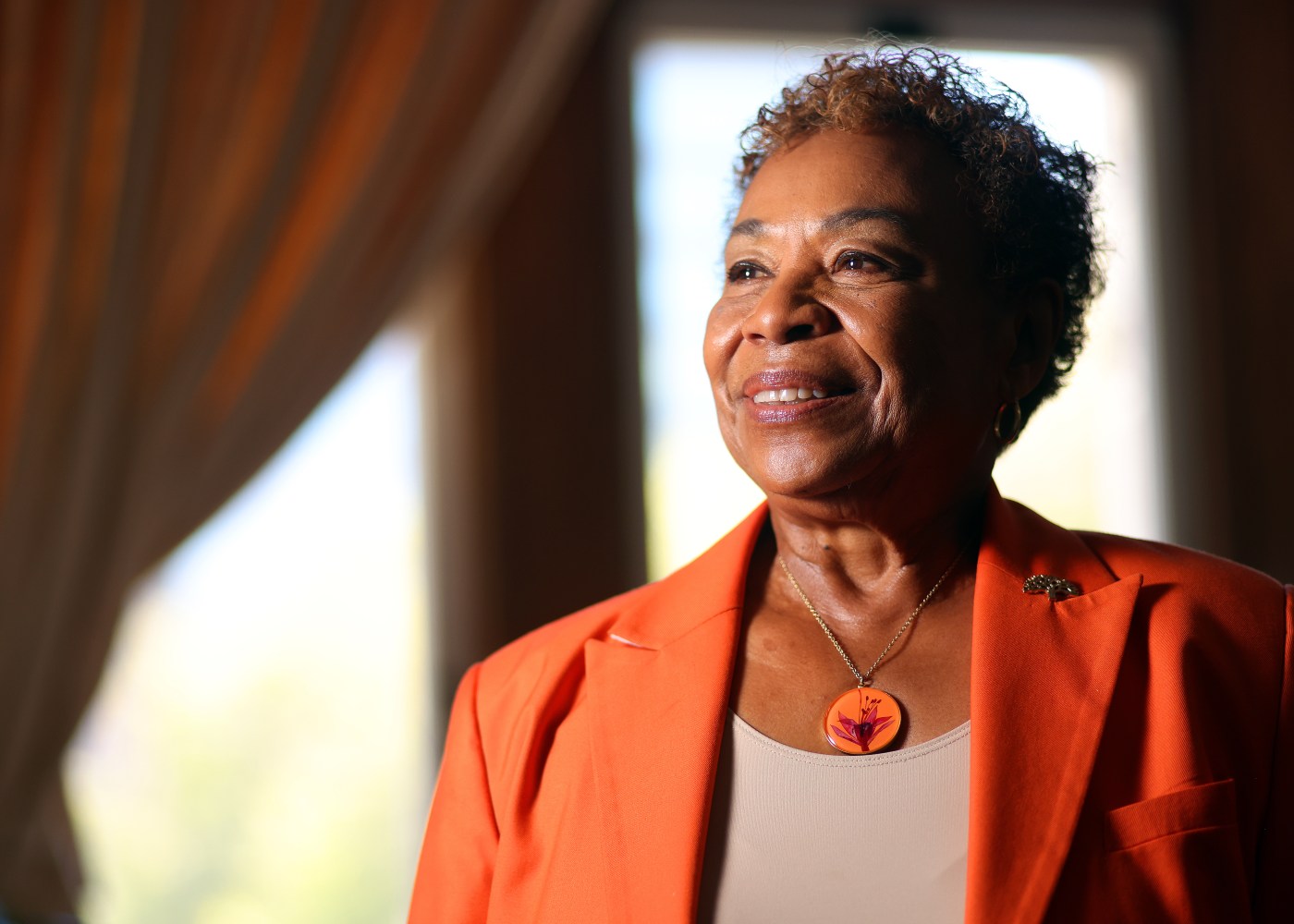
OAKLAND — In her first 100 days in office, Mayor Barbara Lee says she has been prioritizing transparency, whether it’s about the city’s response to President Donald Trump’s threats, or data on how its departments are performing.
But that doesn’t mean she’ll reveal everything. Though the time demands of the job have made her very familiar with the takeout options around the city, she declines to name a favorite restaurant, breaking into a chuckle as she ducks a question about it.
She was, however, happy to elaborate on what so far has frustrated her about the city’s top political job, a position many around Oakland were surprised Lee even wanted, but which she won after a special election held in April, following the recall of ex-Mayor Sheng Thao.
“I don’t want to communicate X, Y and Z if the data isn’t showing it. Some of these systems are very old and we need to upgrade them,” she said in a sit-down interview on Wednesday — a day before the 79-year-old former congresswoman’s 100-day milestone — at City Hall.
Improving the city’s internal technology is not the splashiest endeavor for the East Bay progressive icon. Nor is another major project of her first months in office: convening a group to study how power is distributed within Oakland’s mayor-council government structure.
But these are perks available to Lee, who is leading a more peaceful city than the one of the past few years. Crime is down across the board. The turmoil stirred by a corruption scandal surrounding Thao has somewhat subsided. No other sports teams are on the verge of leaving.
There is, however, the antagonism of the Trump administration, which in recent weeks deployed National Guard troops to Washington, D.C, with the president warning he could do the same in Oakland.
Lee, who returned this week from a Democratic National Committee meeting in Minneapolis, said “we can’t back off if the administration challenges Oakland — we have to push back on that.”
Oakland Mayor Barbara Lee at City Hall on Wednesday, Aug. 27, 2025, in Oakland, Calif. (Aric Crabb/Bay Area News Group)
Related Articles
Mayor Barbara Lee has a new plan for solving homeless crisis in Oakland — and it has major financial backing
Oakland leaders on high alert after ICE arrest of minor, Trump’s threat to send National Guard
Ex-Oakland Mayor Sheng Thao’s attorney considering request to move bribery trial
Oakland Mayor Barbara Lee decries Trump’s latest attack as ‘cheap’ and ‘wrong’
Libby Schaaf drops out of 2026 state treasurer race after Kounalakis drops in
In reality, however, the mayor does not count many concrete options for opposing an increasingly invasive federal government.
Immigration and Customs Enforcement officers appeared to have little trouble arresting seven East Oakland residents earlier this month, while the San Francisco Standard reported that ICE accessed license plate information from an Oakland police database.
Lee said only that her office is raising funds — via a new “One Oakland” fund at the East Bay Community Foundation — for legal services that protect immigrants. Beyond that, it does not appear the city has many cards to play.
Still, the mayor’s political gravity may position her as a formidable voice to lead Oakland until the next regular mayoral election in November 2026.
A close ally, Councilmember Janani Ramachandran, described Lee before the April election as “an elder in the room to get everyone to sit down and shut up.”
Lee, however, cited her bachelor’s degree in psychology in describing herself as a listener, having held an endless run of meetings with officials and citizen groups to help understand, point by point, how the city functions.
A progress report published for the mayor’s first 100 days in office lists several tangible achievements: employing volunteers to remove 30 tons of trash around the city’s schools, reducing wait times for digital building permits from seven days to one, installing nearly two dozen new streetlights around the Fox Theater on Telegraph Avenue.
The local activists who cheered on Thao’s recall, meanwhile, have stuck around, holding press conferences in the past week to deny that crime is down and turning, increasingly, to a more openly right-wing brand of politics.
Brenda Grisham, a pro-recall advocate who earlier this week declared her candidacy in next year’s mayoral election, said in an interview she would have “mixed feelings” if Trump sent National Guard troops to Oakland.
The movement, while small, has not eluded Lee, but unlike Thao before her, Lee pays them little attention.
“I have no time for that — I really don’t,” she said. “If I’m going to help this city and make life better for everybody, wherever they live, I’ve got to hunker down.”
Lee said she is working closely with Police Chief Floyd Mitchell, who was noticeably absent from a city news conference held in response to the president’s National Guard remarks. “He has been very present,” Lee said, affirming their relationship is harmonious.
The mayor arrived at a City Hall where tensions had reached a boiling point around Oakland’s troubled financial state, among other political divides.
“People were too siloed, not working together,” she said. “So one of my goals was for alignment – between the council, mayor, city administrator and the police. And we’re still working on it, but we’ve made a lot of progress.”
Many different people around Oakland have received time with Lee, including land developers embedded in a growing movement among Democrats pushing for widespread housing construction. The mayor this week publicly backed SB 79, a bill by state Sen. Scott Weiner, D-San Francisco, to remove building restrictions on housing constructed around major transit stops.
Could Oakland bloom into a metropolis one day, becoming a city as dense as Brooklyn? Lee, who first came to the city as a college student in the 1980s, raised her eyebrows at the question.
“Brooklyn? Do you know the gentrification that’s happened there?” she said skeptically.